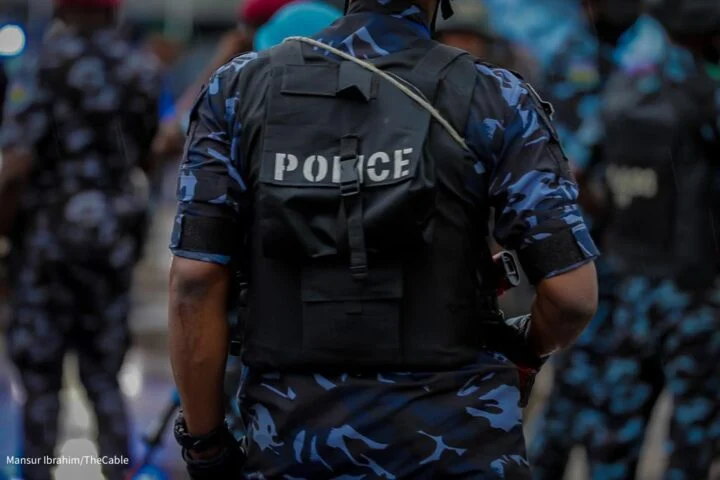For most Nigerians, the report that 229 police officers lost their lives in the space of 22 months can be bloodcurdling. The figure comes down to an average of 10 officers across all ranks a month. This is unfortunate, grossly unacceptable and must be checked even as loss of life is part of the contract they signed on recruitment. But the pain is that most of these deaths are avoidable.
The report claims that the cause of death is due to the activities of non-state actors known commonly as bandits, hoodlums, gunmen, Boko Haram terrorists, cultists and armed robbers.
These officers paid the supreme price in trying to discharge their duties of protecting life and property. In other words, they were killed in the line of duty. With this report, it is pointless to begin to imagine the number of ordinary Nigerians who may have lost their lives too within the same period, their only offence being that they were Nigerians governed by a political elite that has lost its value for human life.
The risk they are exposed to as they embark on the duty of maintaining law and order is often treated with levity and dismissed as part of what they signed for by the authorities, whose part of the bargain ought to be to ensure that they live to continue to carry out their assignment.
It is common knowledge that a Nigerian police officer functions like one on a suicide mission in the sense that the criminals they encounter as they carry out their operations are better motivated, armed with sophisticated weapons, and operating at a level of intelligence input that surpasses that of the Force.
That, in our opinion, is the crux of the matter. We have repeatedly stated on this page that men and women of the Nigeria Police Force (NPG) deserve to be better equipped for the hazardous job they are called upon to do.
In unfortunate circumstances, their weapons are not good enough to protect them from the onslaught of criminals. When such weapons are not outmoded, the ammunition is insufficient to the point that they have to account for every bullet expended.
It is on record that in all the disciplined forces, the Nigeria police officer is, unarguably, the poorest in terms of remuneration and general welfare. Their incomes pale disastrously in significance to their jobs, creating situations that encourage them to be unprofessional if they must continue delivering service to society. Most often, out of their poor income, they must buy for themselves uniforms and other accessories specific to their calling even as they put their lives on the line for the love of country.
We boldly say that the desire to achieve is imbued in police officers and men. Their performance when posted to foreign missions, where they are given all the tools they require in the exercise of their duty, has consistently proven this.
The plight of the police officer on duty is compounded by the fact that they carry out their operations blindly with very little intelligence input, making it seem foolhardy. It is often explained that it is the nature of the job. But we disagree.
It is not the nature of the job for a police team to chase criminals in rickety vehicles. It is a deliberate exposition to danger for a police officer to go on an operation with ammunition that is counted, recorded, and must be accounted for and with a rifle that ought to be consigned to the museum. Similarly, we argue against the pervasive practice in the force whereby operatives rely on themselves for their welfare, stemming from the common statement, ‘The Inspector-General has given you a uniform; go and fend for yourself’.
The aphorism that there must be a material basis for patriotism is more apt in disciplined forces, especially the police, given their jobs and the threat they pose not just to the men and women concerned but also to the nation at large in the event of mission failure.
They are part of the society with families and extended relations who depend on them for day-to-day living.
We have consistently brought the authorities’ attention to the challenges confronting the country’s security agencies, some of which are self-inflicted. The most common is inter-agency rivalry, the absence of synergy and coordination in information management. The use of technology in intelligence gathering is, to say the least, rudimentary. A police operation without intelligence input is akin to fighting blindfolded with one’s hands tied.
In our opinion, the police have no business losing this many officers within a short time. We believe that the high command should be alarmed enough to take practical measures to safeguard the lives of their own men and women in the field. We insist that policing is not a suicide mission and should not be made to look like one. It is noble to die gallantly in defence of the nation. It is nobler still to defend the nation and stay alive to tell the story.
